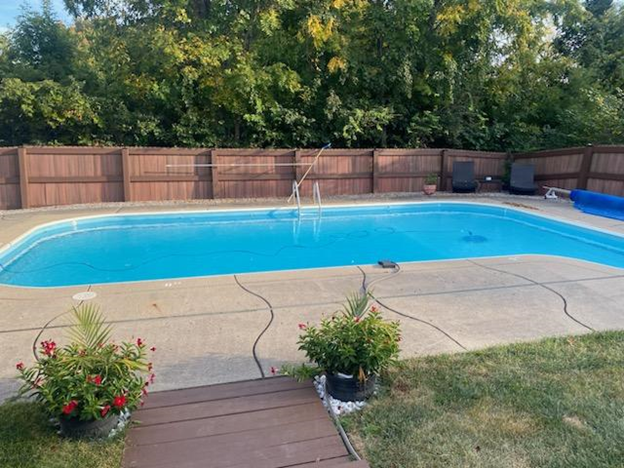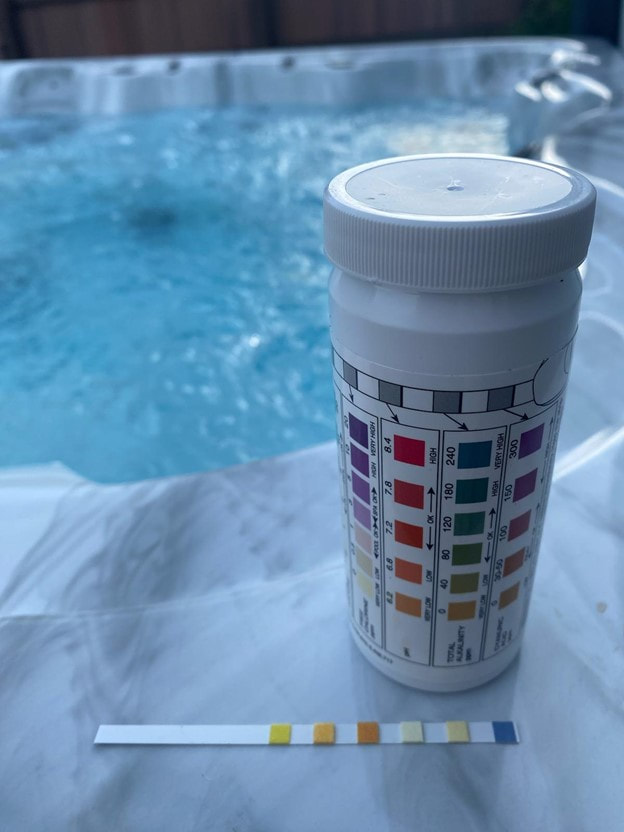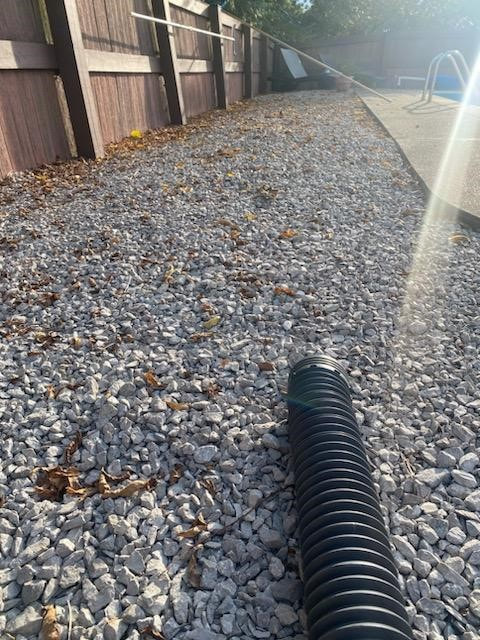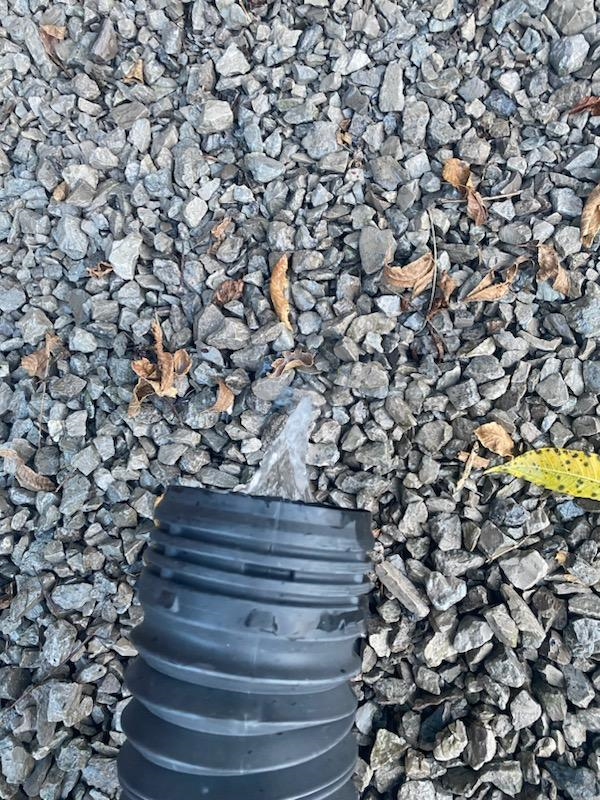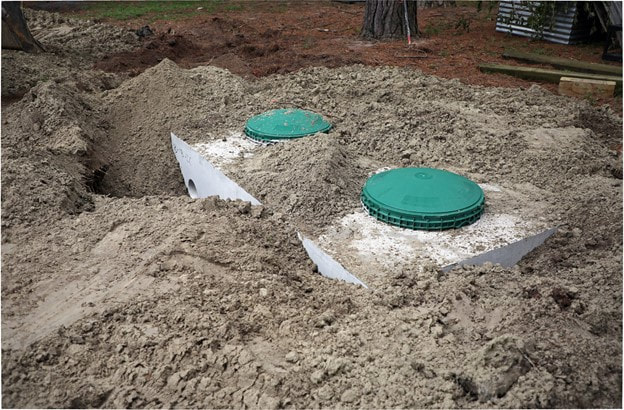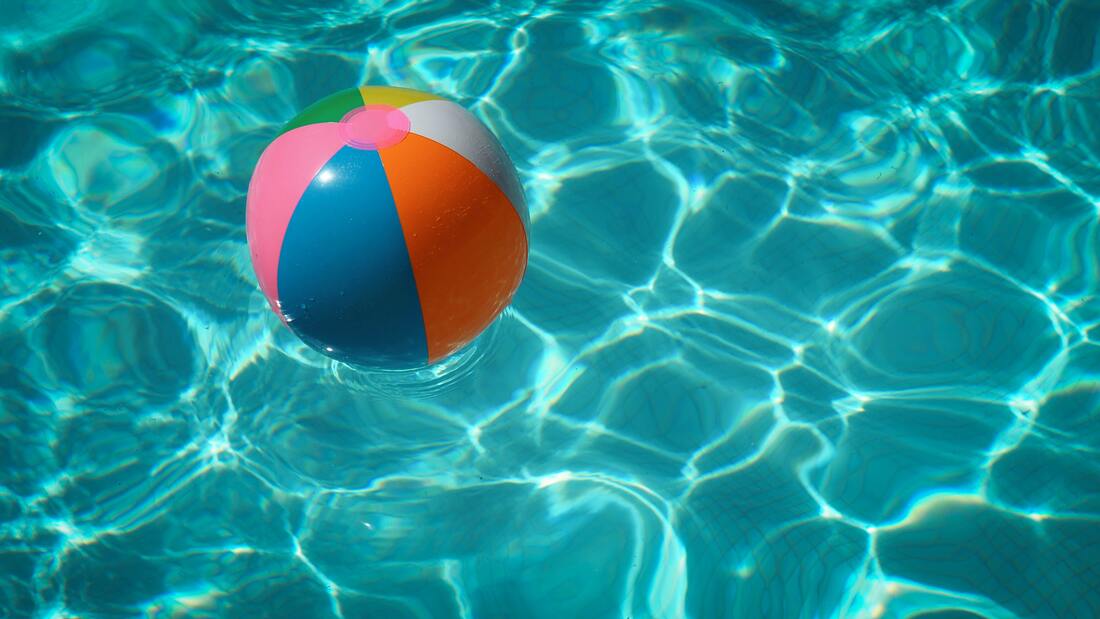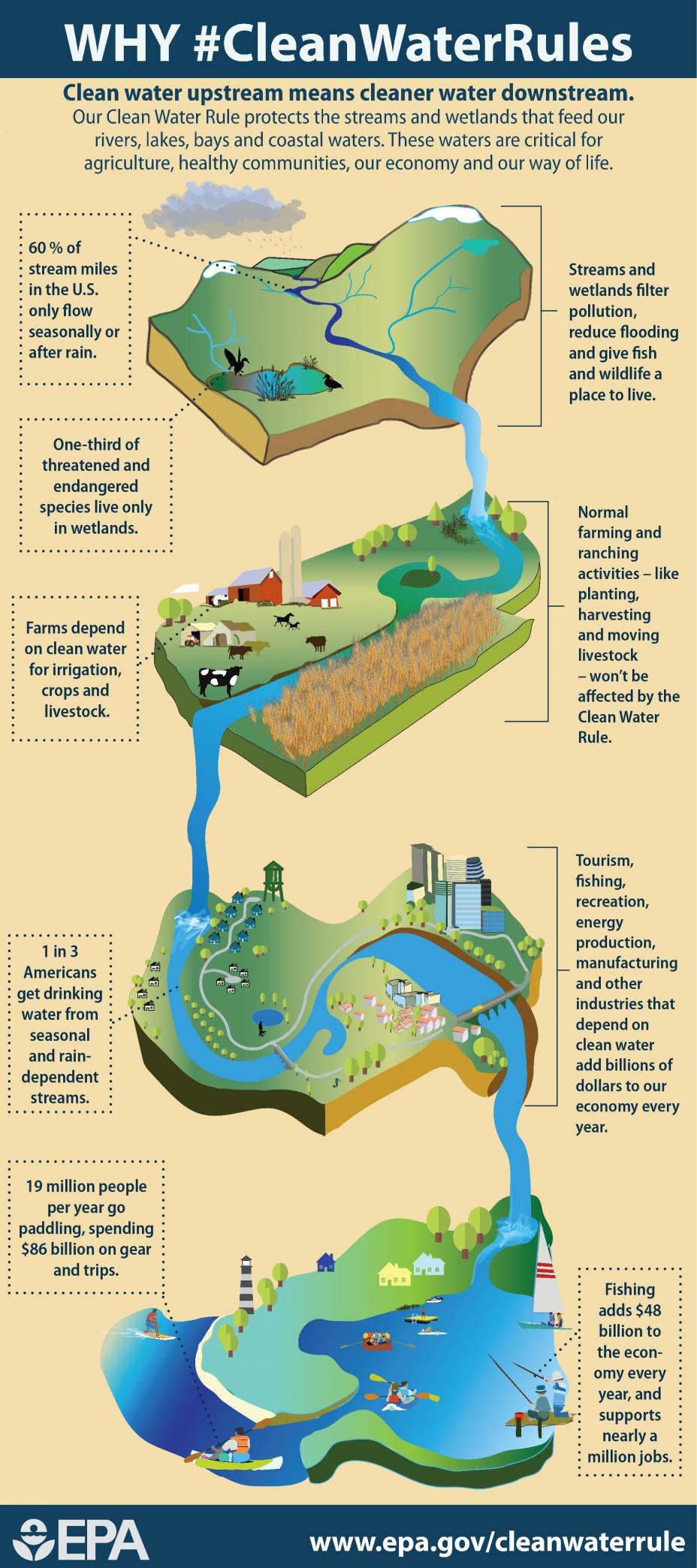|
We hate to be the bearers of bad news, but the end of summer is quickly approaching. While that means pumpkin spiced lattes, football, and changing leaves are all around the corner, it might also mean you are thinking about closing your pool for the season. There are several things you should consider when preparing for the end of the season to help protect the natural resources and infrastructure in your area. Draining Pool Water 101 1. Make Sure Pool Water is Chemical-Free Before Draining Let pool water stand for a week (7 days) without adding any additional chemicals. This allows for chlorine to dissipate from the water. The pH range should be between 6.5 and 8.0 and residual chlorine/bromine needs to be less than 1.0 mg/l (ppm) before discharging. You can use a home test kit or strips to verify levels. Before draining, also clear as much sediment, debris, leaves, etc. from the pool water as you can. Note: Any pool chemicals, pool filter backwash, and saltwater pool discharges are prohibited from being discharged in stormwater systems and drainage channels leading to steams. Water that is conveyed through stormwater systems is not treated prior to being discharged into natural waterways. 2. Be Mindful of Where You are Draining Once pool water is free of all chemicals, the water should be discharged over landscaped area, lawns, or woods. These areas soak up water better than bare soils and helps to prevent erosion and sediment runoff. This practice also prevents picking up additional contaminants off hard surfaces like roadways or sidewalks. Be sure to keep the discharges on your property to prevent hardship to any neighbors. 3. Do Not Drain Everything at Once Rather than a fast moving, concentrated stream, the best practice is to drain the water slowly over a few days to allow for the absorption of water into the ground. Spreading the water out over an area can also help to prevent erosion from the discharge. If draining from a hose, move the hose around to prevent continued saturation in one area. 4. Do Not Drain Pool Directly into Septic System This can overwhelm the system and cause failures. Failed septic systems can discharge waste that has not been properly treated and pollute stormwater systems and natural waterways as well. Photo Credit: Virginia Sea Grant Bonus Tip to Protect Your Natural Waterways :
Make sure your pool chemicals are stored in labeled and lidded containers in a secure and dry storage area. Make sure that you are disposing any leftover chemicals or storage containers according to the direction on the container. For more information on proper pool closure, contact our office at 513.695.1337
2 Comments
In Warren County, Ohio storm drains and yard drains lead directly to creeks and drinking water reservoirs with no treatment. Water conditioners, chlorine, bromine, algaecides, biocides, stabilizers, salts and other chemicals used in pool and spa water are toxic to fish and other aquatic life and disrupt the natural balance within waterways.
Pool chemicals are prohibited by law from being discharged into storm drains or waterways. Allowable discharges include dechlorinated pool water that has no trace of chemicals. Pool filter backwash or saltwater pool discharges are prohibited in storm drains and drainage channels leading to streams. How to Properly Drain Pool/Spa Water
The community you live in may have more stringent requirements under local laws for swimming pool discharges. Therefore, it is important that you also check with your community to determine what requirements they may have in place. For questions regarding Warren County Soil and Water Conservation District programs and/or technical assistance on water or soil questions, visit http://warrenswcd.com or call, 513-695-1337. 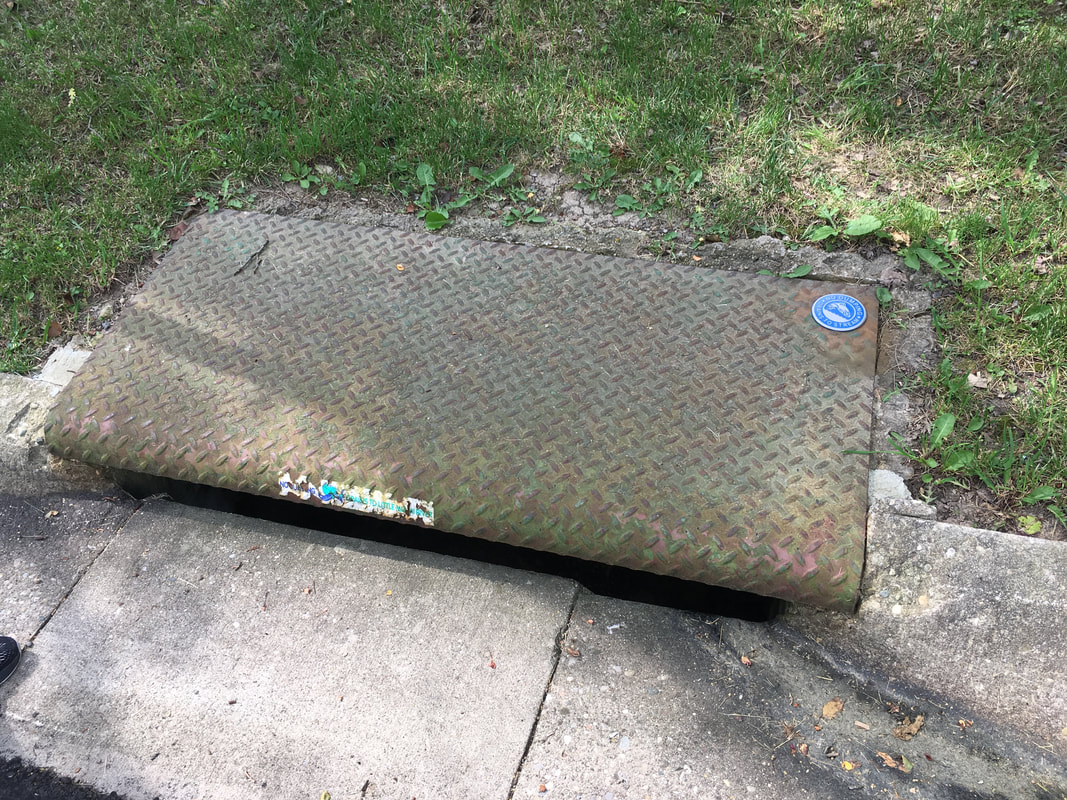 Often people think that disposing of waste liquids, products, etc. down a drain is ideal because eventually it all gets cleaned out at a wastewater treatment plant. After all, all drains go to the same place right? The answer to that question however is NO. It is important to understand the difference between sanitary sewers and storm sewers so we can protect our water resources. The sanitary sewer is a system of subsurface pipes that carries sewage from bathrooms, sinks, kitchens, and other plumbing components to a wastewater treatment plant where it is filtered and treated before being discharged. The storm sewer however is a system designed to carry rainfall runoff and other drainage. It is not designed to carry sewage or hazardous wastes that can enter the environment as pollution. The runoff is carried in subsurface pipes and/or open ditches and discharges untreated into local streams, rivers and other surface water bodies. Storm drain inlets are typically found in curbs and low-lying outdoor areas. Some older buildings have basement floor drains that connect to the storm sewer system. (MSU WATER) Disposal of chemicals or hazardous substances to the storm sewer system damages the environment. Motor oil, cleaners, paints and other common household items that get into storm drains can poison fish, birds, and other wildlife, and can find their way into drinking water supplies. In addition, grass clippings, leaves, litter, and organic matter can clog storm drains, cause flooding, and increase nutrient pollution in waterways. You may have seen storm drain tags placed by Warren County SWCD reminding people "Only Rain Down the Drain" and other similar messaging to help protect our environment and water resources. There are a wide range of things people can do at home to help safeguard our water sources; from installation of rain gardens and rain barrels to slow down stormwater runoff to washing your car NOT in the impervious driveway. But simply put, only rain water should enter our storm drains! To find out more about what you can do to help prevent water pollution, visit our Partners at Save Local Waters! At Warren SWCD we care about water, clean water to be specific. Why do we care? Look below... The EPA established the Clean Water Rule to accomplish all the the goals shown above. The Clean Water Rule protects streams and wetlands that are scientifically shown to have the greatest impact on downstream water quality and form the foundation of our nation’s water resources. Read a summary the Clean Water Rule HERE. It's important to recognize that the rule protects clean water without getting in the way of farming, ranching and forestry. But how does the Clean Water Rule protect our waters? The Clean Water Rule protects our waters by clearly defining regulations and permitting for any effort that might disrupt, modify, pollute or destroy the Waters of the State. Learn more about these permits on the EPA Website.
|
Details
Warren County SWCD Staff BlogA blog to keep you informed on all the latest news at Warren County SWCD and in the conservation world. Archives
May 2024
Categories
All
|
|
|
Contact:PHONE: (513) 695 - 1337
EMAIL: [email protected] HOURS: Monday - Friday 7:30am - 4:00pm (except holidays) Connect:Warren County Soil & Water Conservation District Copyright © 2016
Warren SWCD Privacy Notice. Emails are serviced by Constant Contact. Constant Contact's Privacy Notice. |
